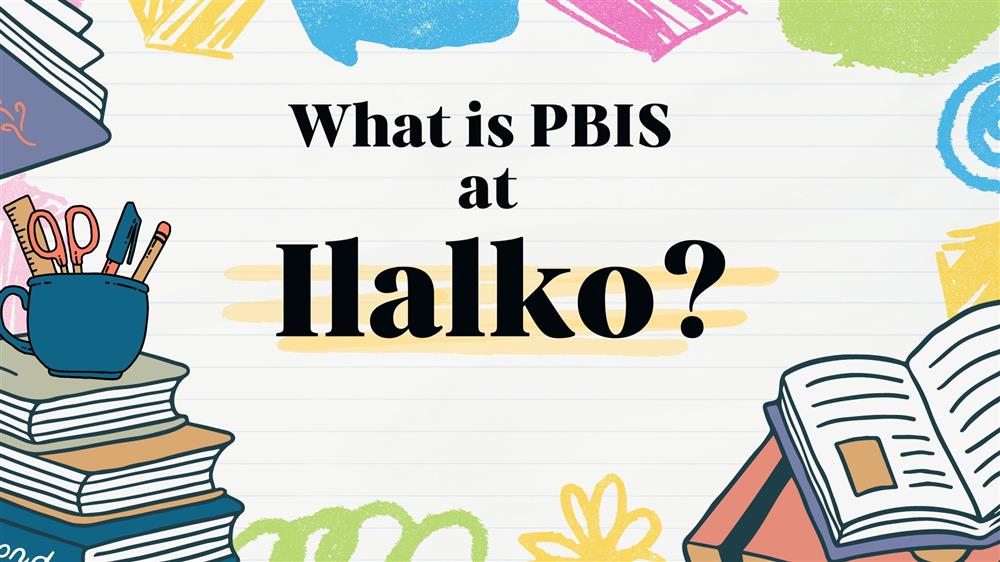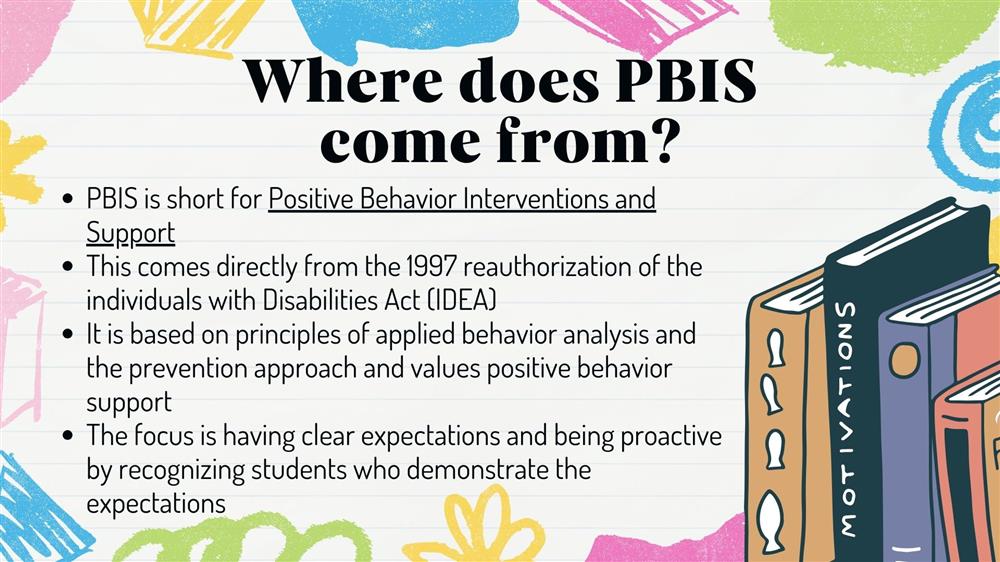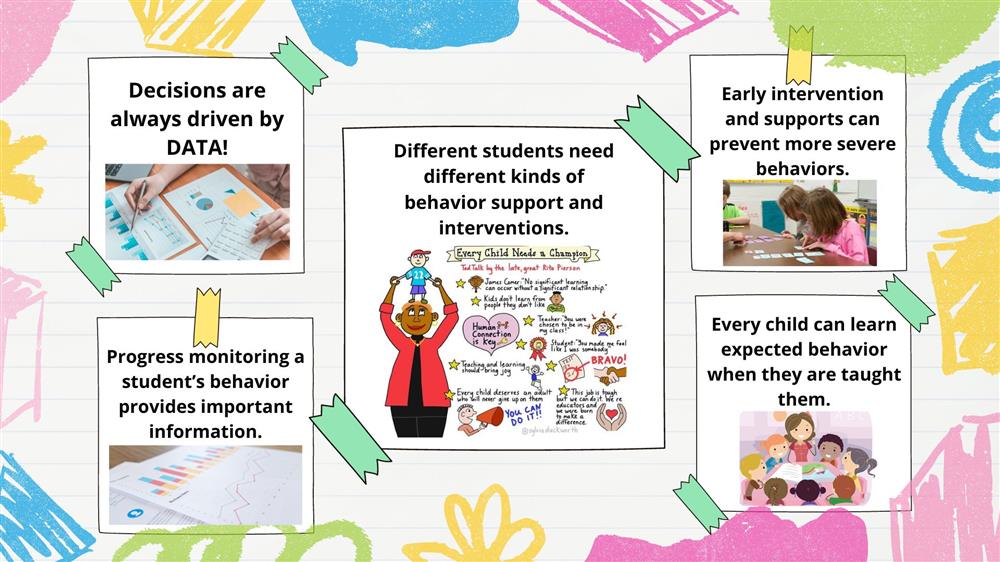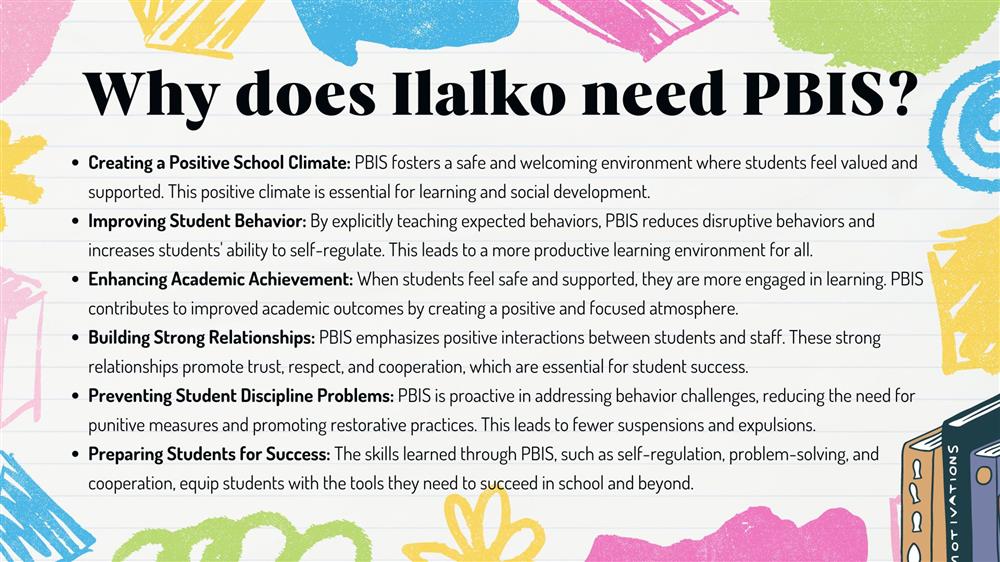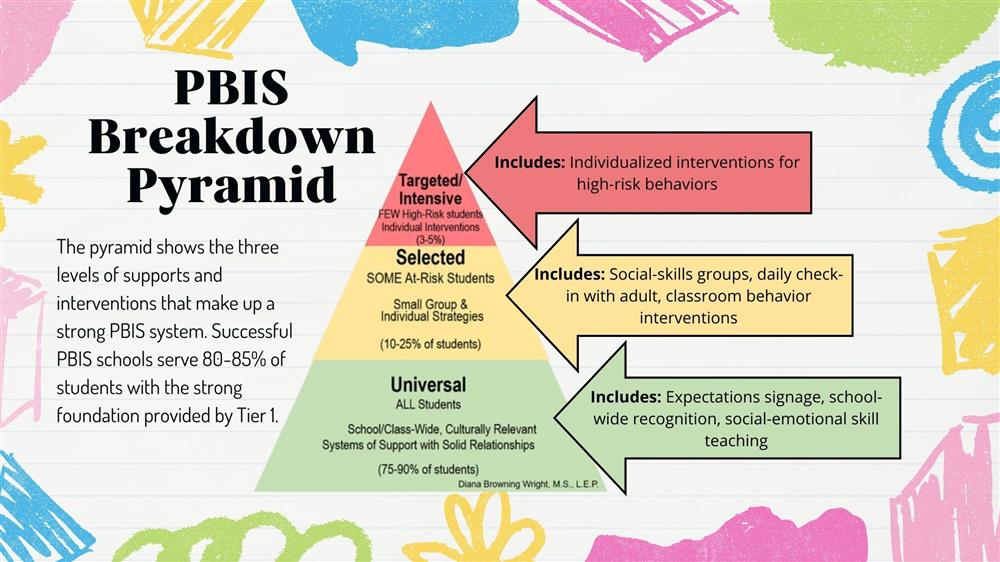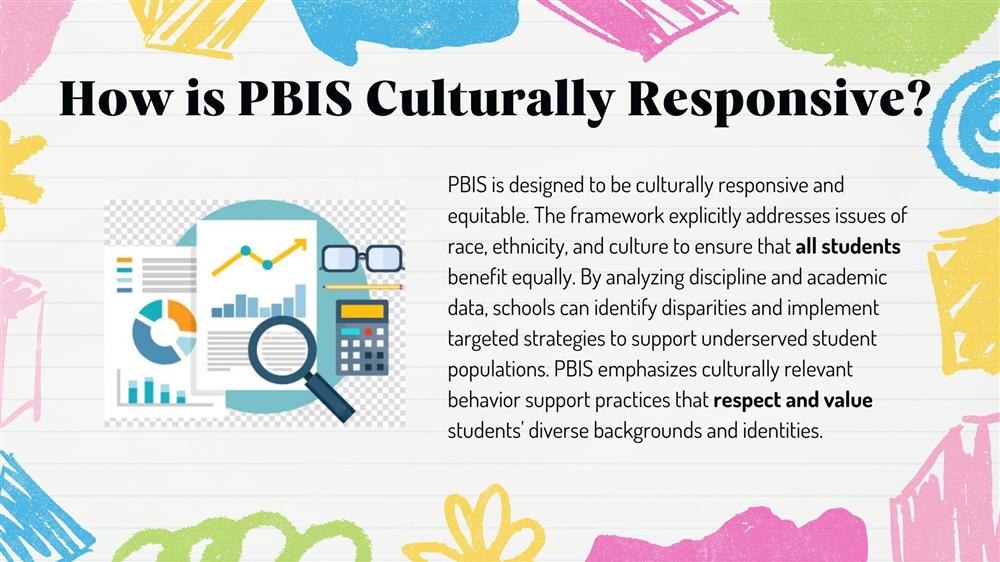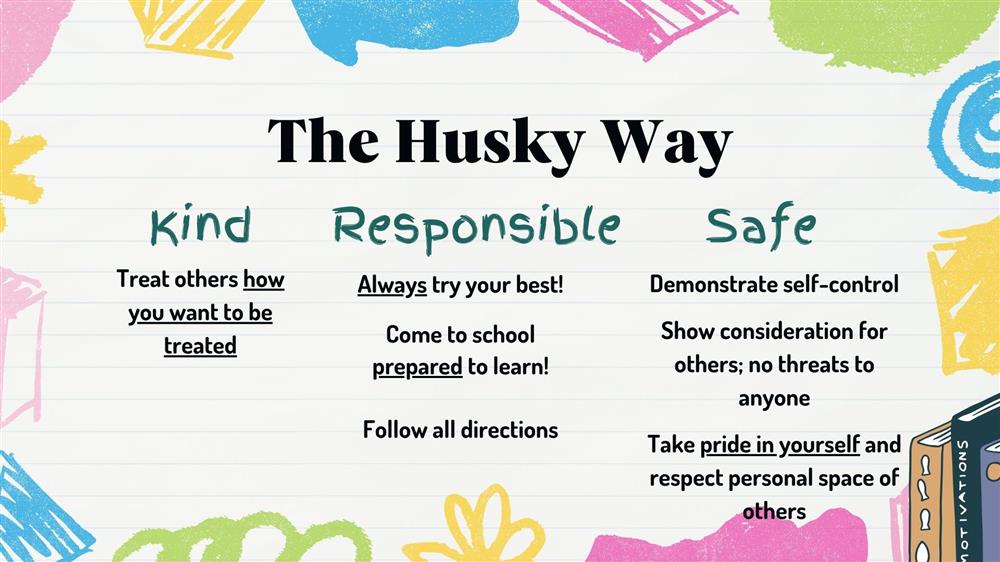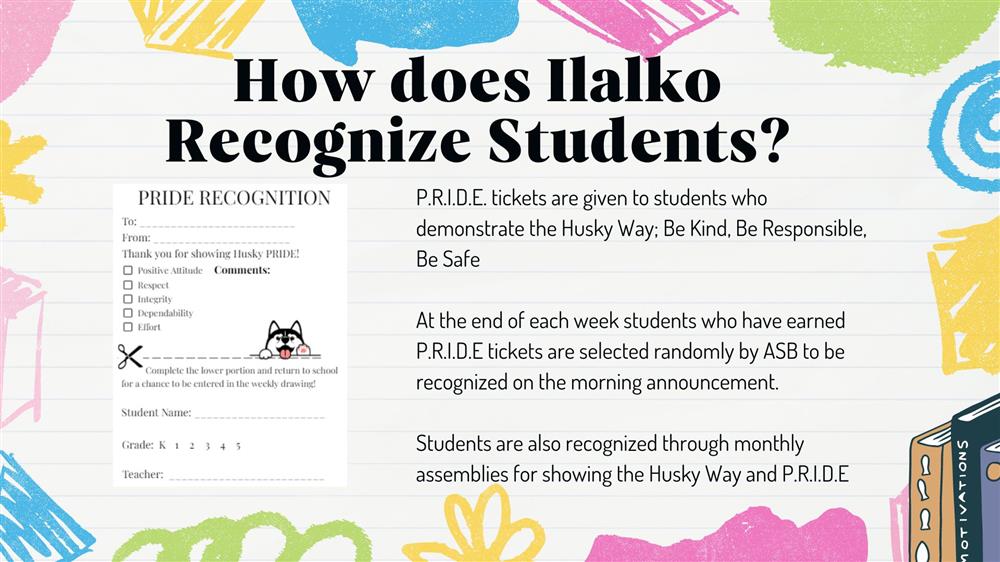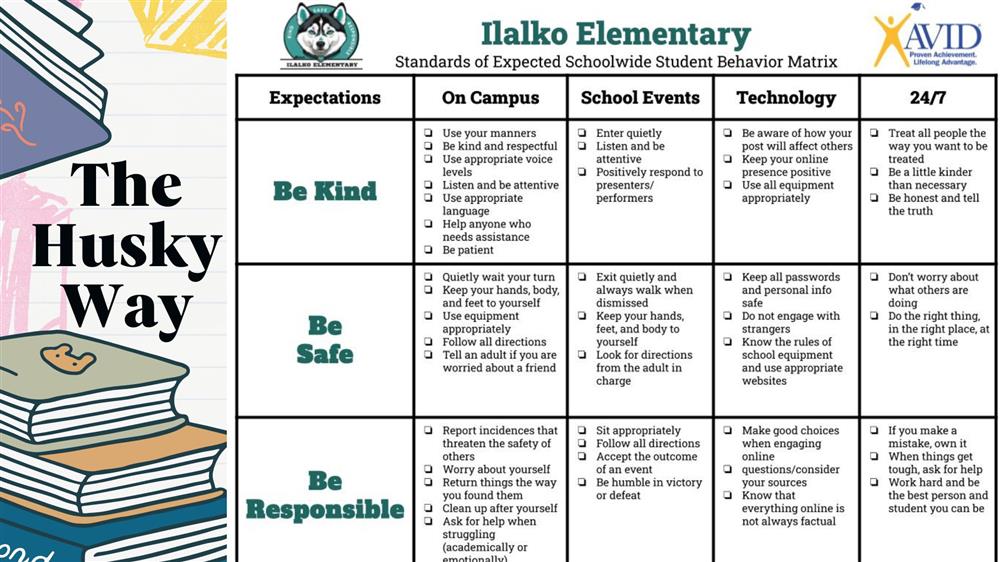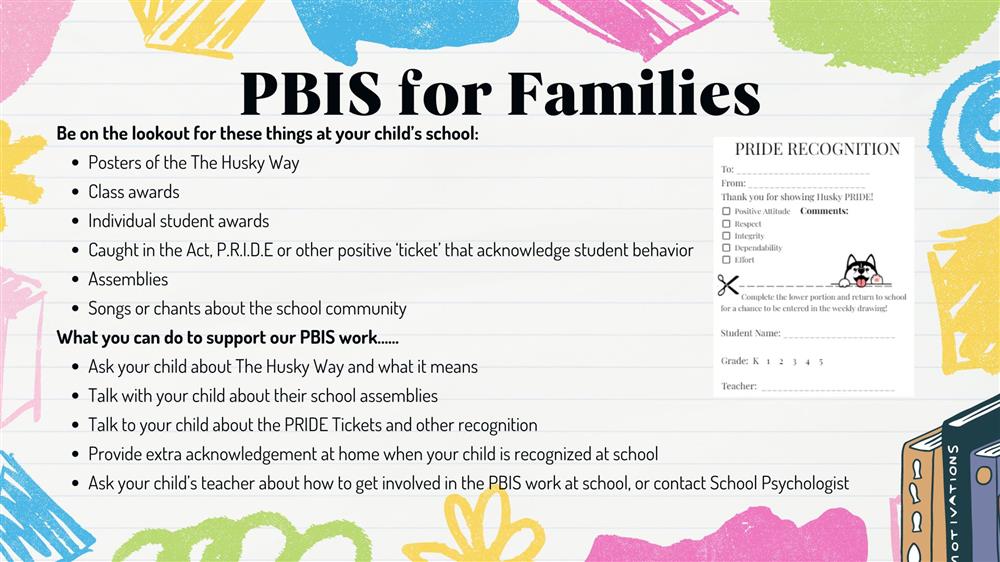- Ilalko Elementary School
- What is PBIS?
-
What is Positive Behavioral Interventions and Supports (PBIS)?
Enhancing student academic performance and behavior involves providing every student with access to the most effective and well-implemented instructional and behavioral strategies and interventions. PBIS (Positive Behavioral Interventions and Supports) creates the social culture and personalized behavioral support necessary for students to succeed socially and academically while preventing problematic behaviors. PBIS is not a curriculum, intervention, or practice; instead, it is a decision-making framework that guides the implementation of evidence-based academic and behavioral practices to improve key outcomes for all students.
What are the categories Positive Behavioral Interventions and Supports Emphasize?
PBIS emphasizes four integrated elements:
- Data for decision-making
- Measurable outcomes supported and evaluated by data
- Practices with evidence that these outcomes are achievable
- Systems that efficiently and effectively support the implementation of these practices.
How is Positive Behavioral Interventions and Supports Culturally Responsive?
The PBIS framework incorporates considerations of race, ethnicity, and culture to ensure that its activities and outcomes are equitable for all student groups. By analyzing discipline and academic achievement data, we can identify underserved groups and adjust our practices to better meet these students' needs. Both school-wide and individual behavior support strategies are culturally relevant, recognizing and valuing each student's background and identity.
Want to know more?
To learn more about What PBIS is at Ilalko please explore the slide deck for more information. The pyramid on slide 5, illustrates the three levels of support and interventions that form a robust PBIS system. In successful PBIS schools, 80-85% of students benefit from the strong foundation provided by Tier 1.
